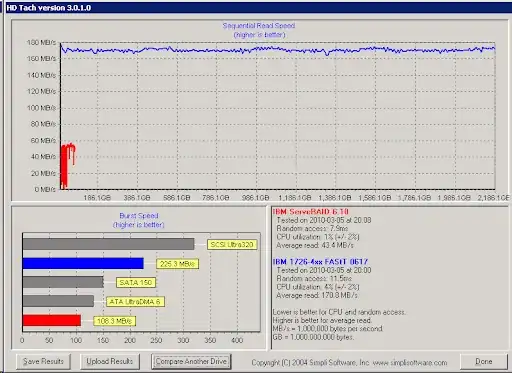I need to buy a new server destined for Navision 2009 database on SQL Server 2008.
Database is 50GB large and growing 10 GB a year.
I'm considering to create a cluster on 2 servers. Didn't decided yet whether SQL server cluster or Hyper-V cluster.
Both solutions require external SAN shared between those 2 servers.
I'm a little worried about SQL Server performance of SAN.
I already have IBM Storage but I'm using it only for backup.
Here you have HD Tach comparison of my local disc (which is currently handling SQL Server database) and this storage

Red is local disc.
Blue is SAN.
What I see is that local disc has better seek time, but SAN has better read/write speed.
So which is more important for large (>60GB) financial databases - seek time or read/write speed?
Will Hyper-V kill my SQL Server performance?
Will more RAM help and balance seek time sacrifice?